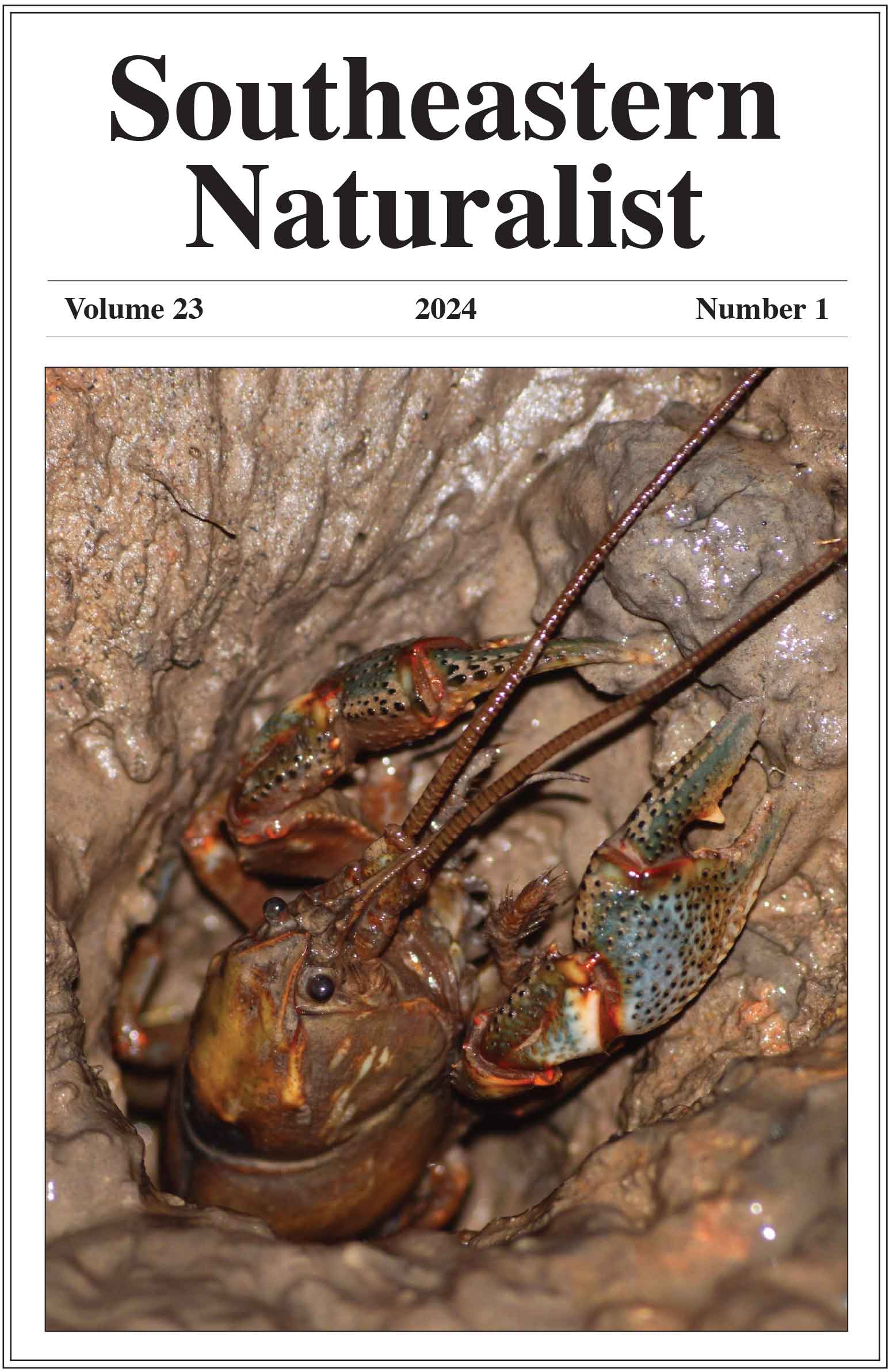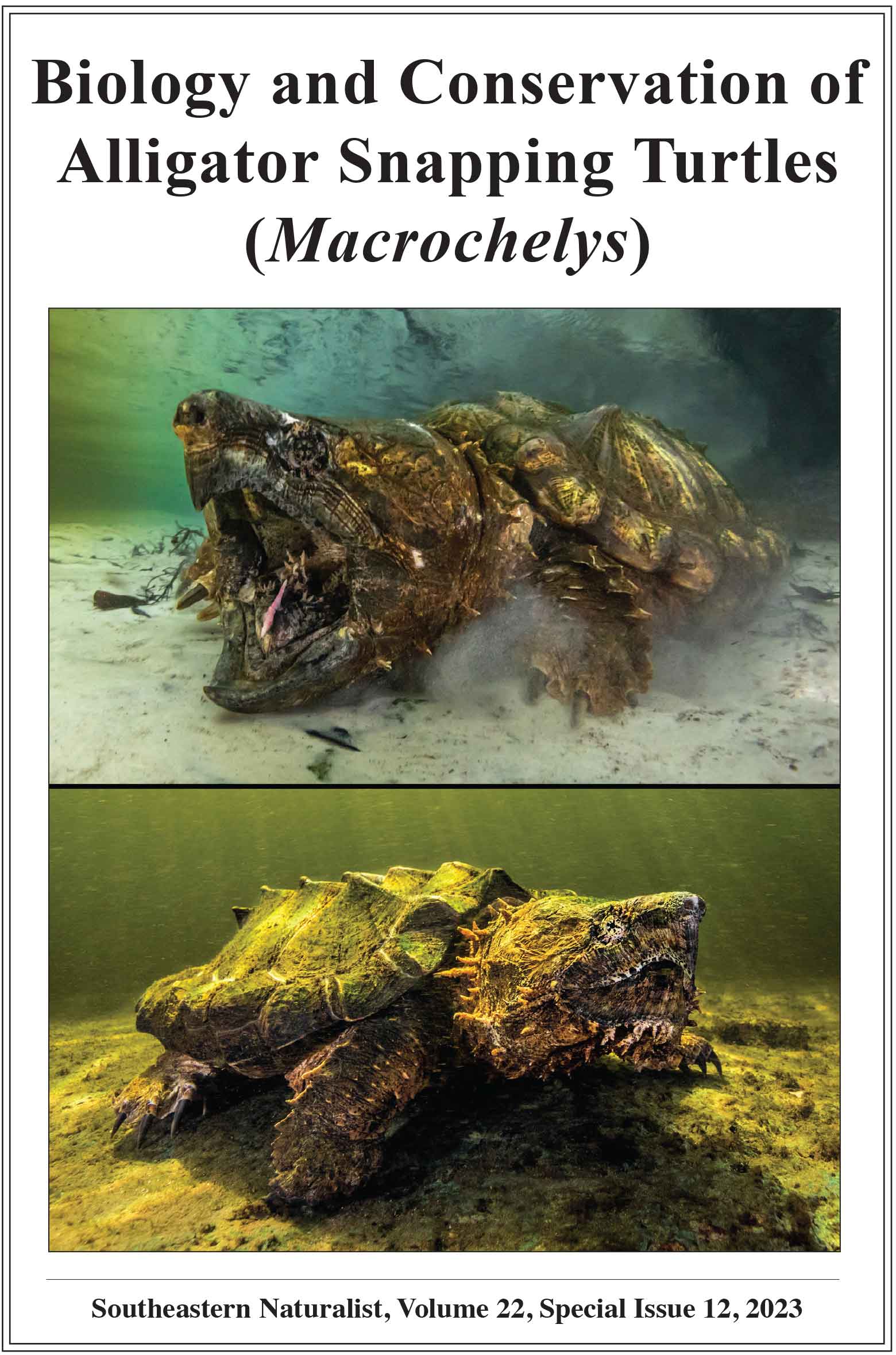Effects of Hen Wild Turkey (Meleagris gallopavo) Incubation Recess Behavior on Survival and Nest Survival in Florida
Bobbi G. Carpenter1,*, Kathryn E. Sieving2, Theron M. Terhune II3, Roger Shields4, H. Tyler Pittman5, and Andrea Sylvia1
1Florida Fish and Wildlife Conservation Commission, Gainesville, FL 32601. 2Department of Wildlife Ecology and Conservation, University of Florida, Gainesville, FL 32611-0430. 3Belvedere Property Management, Winnabow, NC, 28479. 4Tennessee Wildlife Resources Agency, Nashville, TN 37211. 5University of Florida, Institute of Food and Agricultural Sciences Extension, Trenton, FL 32693. *Corresponding author.
Southeastern Naturalist, Volume 22, Issue 3 (2023): 402–418
Abstract
For bird species that exhibit comprehensive parental care (e.g., incubation, brooding, and extended parental care post-fledging), protection of self, as well as juvenile offspring, requires parent birds to have separate but overlapping anti-predator strategies during reproductive phases of the annual cycle. Behavior of nesting hen Meleagris gallopavo (Wild Turkey) may vary due to landscape features (e.g., roads, water source, or pastureland), potentially influencing predator encounter rates at the nest and consequently affecting nest survival. We assessed factors affecting nest survival and hen survival during incubation, including temporal patterns of M. g. osceola (Osceola Wild Turkey) and M.g. silvestris (Eastern Wild Turkey) recess behaviors. We used data on recess bouts from 37 hens fitted with global positioning system (GPS) transmitters and 54 confirmed nest attempts in north and north-central Florida to determine the effect of nest attendance on nest survival. On average, hens took 0.89 incubation recess bouts between 0800 and 1800, usually in the afternoon. Hen survival increased with an increase in daily recess bouts, longer daily recess bouts, and later nest incubation-initiation dates, and the probability of nest survival increased when hens took longer afternoon recess bouts. Nest survival was greater in the north-central region. These results indicate increases in recess duration contribute to greater hen and nest survival, which may be due to reduced nest-predator activity in the afternoon at the study sites. We recommend additional research into the relationship between predator activity and nesting Wild Turkeys on managed lands similar to those in our study.
![]() Download Full-text pdf (Accessible only to subscribers. To subscribe click here.)
Download Full-text pdf (Accessible only to subscribers. To subscribe click here.)
Access Journal Content
Open access browsing of table of contents and abstract pages. Full text pdfs available for download for subscribers.
Issue-in-Progress: Vol. 23 (2) ... early view
Check out SENA's latest Special Issue:












 The Southeastern Naturalist is a peer-reviewed journal that covers all aspects of natural history within the southeastern United States. We welcome research articles, summary review papers, and observational notes.
The Southeastern Naturalist is a peer-reviewed journal that covers all aspects of natural history within the southeastern United States. We welcome research articles, summary review papers, and observational notes.